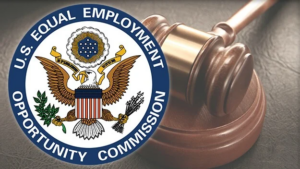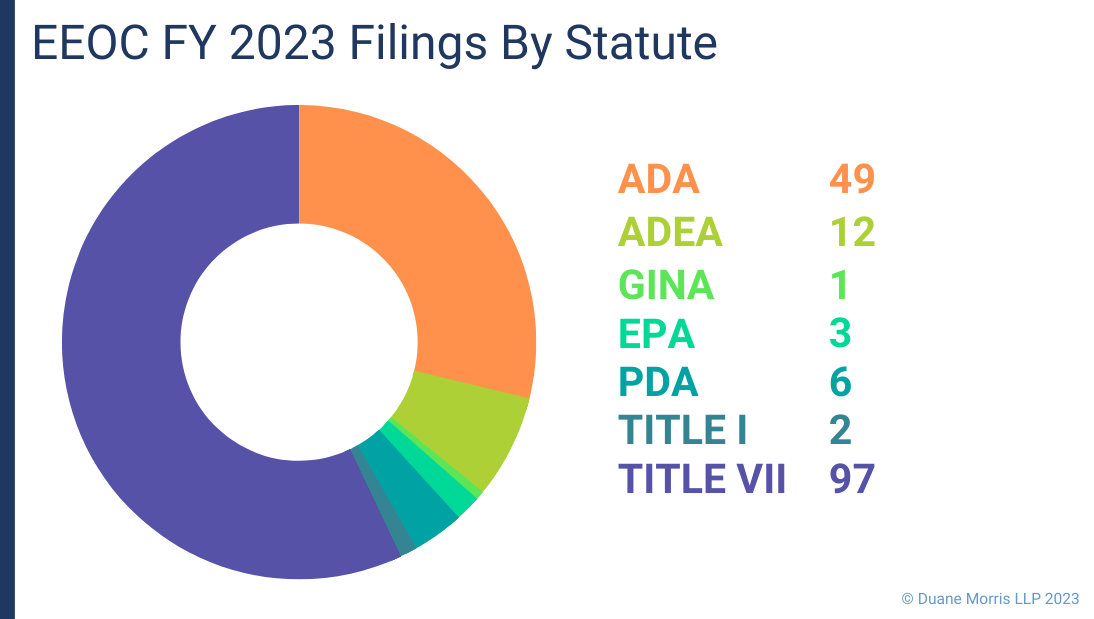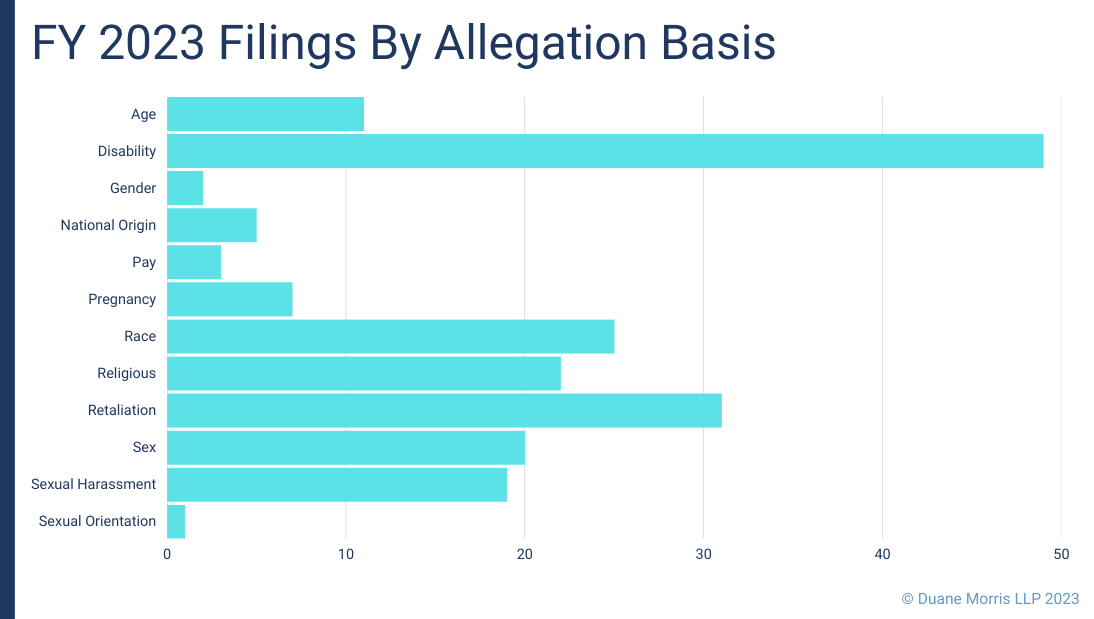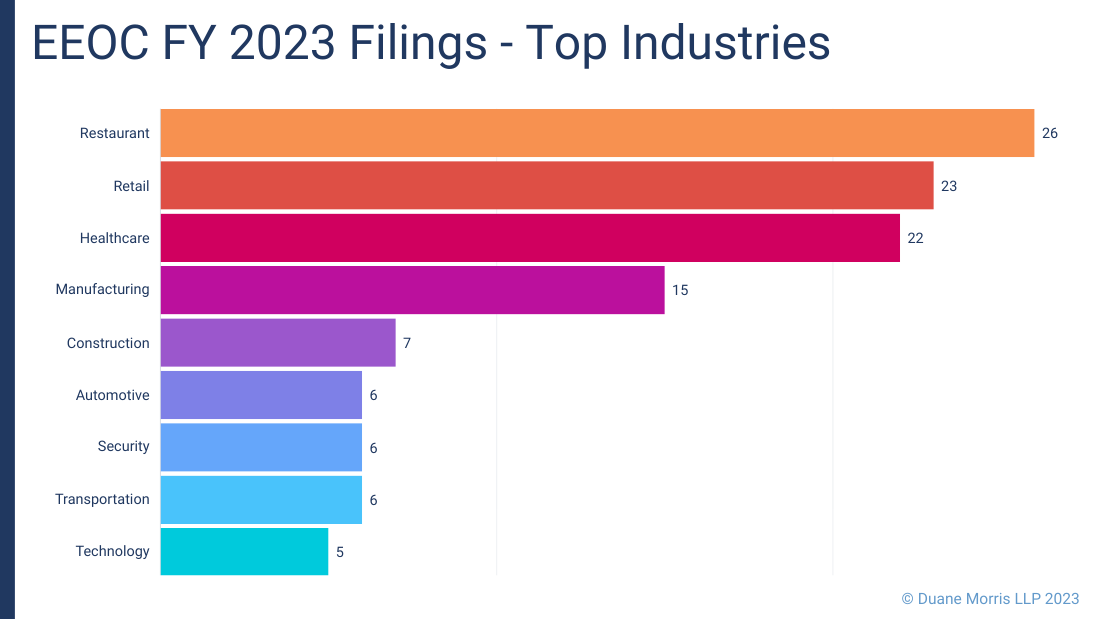 By Gerald L. Maatman, Jr., Alex W, Karasik, and George J. Schaller
By Gerald L. Maatman, Jr., Alex W, Karasik, and George J. Schaller
Duane Morris Takeaways: In Mobley v. Workday, Inc., Case No. 23-CV-770 (N.D. Cal. April 9, 2024) (ECF No. 60), the Equal Employment Opportunity Commission (“EEOC”) filed a Motion for Leave to File an Amicus Brief in Support of Plaintiff and in Opposition to Defendant’s Motion to Dismiss. This development follows Workday’s first successful Motion to Dismiss, about which we previously blogged here, after which the Court allowed Plaintiff a chance to amend his complaint.
For employers utilizing Artificial Intelligence in their hiring practices, this notable case is worth monitoring. The EEOC’s decision to insert itself in the dispute demonstrates the Commission’s commitment to continued enforcement of anti-discrimination laws bearing on artificial intelligence use in employment.
Case Background
Plaintiff, an African American male over the age of forty alleged that he suffered from anxiety and depression and brought suit against Workday claiming that its applicant screening tools discriminated against applicants on the basis of race, age, and disability. Plaintiff further alleged that he applied for 80 to 100 jobs, but despite holding a bachelor’s degree in finance and an associate’s degree in network systems administration, he did not get a single job offer. Id., 1-2 (ECF No. 45).
Workday moved to dismiss the Complaint in part arguing that Plaintiff did not allege facts to state a plausible claim that Workday was liable as an “employment agency” under the anti-discrimination statutes at issue.
On January 19, 2024, the Court granted the defendant’s motion to dismiss, but with leave for Plaintiff to amend, on the ground that plaintiff failed to plead sufficient facts regarding Workday’s supposed liability as an employer or “employment agency.” Shortly thereafter, Plaintiff filed his Amended Complaint. Id. (N.D. Cal. Feb. 20, 2024) (ECF No. 47.)
On March 12, 2024, Workday filed its Motion to Dismiss Amended Complaint, asserting that Workday is not covered by the statutes at issue – Title VII, the Americans with Disabilities Act (“ADA”), and/or the Age Discrimination in Employment Act (“ADEA”) – because Workday merely screens job seekers rather than procuring them. Id., (ECF No. 50.) On April 2, 2024, Plaintiff filed his opposition (id., ECF No. 59) and, on April 12, 2024, Workday filed its reply. Id., (ECF No. 61.)
The motion is fully briefed and set for hearing on May 7, 2024.
The EEOC’s Motion for Leave to File an Amicus Brief
On April 9, 2024, before Workday filed its Reply, the EEOC filed a Motion for Leave to File an Amicus Brief in Support of Plaintiff and in Opposition to Defendant’s Motion. Id., (ECF Nos. 60 & 60-1.) The EEOC noticed its Motion for hearing on May 7, 2024. Id., (ECF No. 60.)
The EEOC describes Mobley as a case that “implicate[s] whether,” Title VII, the ADA, and the ADEA, “cover[s] entities that purportedly screen and refer applicants and make automated hiring decisions on behalf of employers using algorithmic tools.” Id., at 1 (ECF No. 60-1.) The Commission argues that Plaintiff’s Amended Complaint satisfies federal pleading standards “with respect to all three theories of coverage alleged.” Id., at 4.
First, with respect to Workday as an employment agency, the EEOC notes that Title VII, the ADA, and the ADEA, all prohibit discrimination by employment agencies. Under each statute, the term “employment agency” includes “any person regularly undertaking with or without compensation to procure employees for an employer.” Id. The EEOC maintains courts generally construe “employment agency” based on “‘those engaged to a significant degree’ in such procurement activities ‘as their profession or business,’” and the focus on the degree to which an entity engages in “activities of an employment agency.” Id.
The EEOC argues, among these activities, screening and referral activities are classically associated with employment agencies. Id., at 5. The Commission asserts that “[Plaintiff] has plausibly alleged that Workday’s algorithmic tools perform precisely the same screening and referral functions as traditional employment agencies—albeit by more sophisticated means.” Id., at 6. In contrasting Workday’s position, the EEOC urged the Court to find Workday’s arguments that “screening employees is not equivalent to procuring employees,” and that Workday does not “actively recruit or solicit applications” as unpersuasive. Id., at 7.
Second, the EEOC argues leading precedent weighs in favor of Plaintiff’s allegations that Workday is an indirect employer. Taking Plaintiff’s allegations as true, the EEOC contends that “Workday exercised sufficient control over [Plaintiff’s] and others applicants’ access to employment opportunities to qualify as an indirect employer,” and “Workday purportedly acts as a gatekeeper between applicants and prospective employers.” Id., at 11.
The EEOC argues Workday’s position on sufficient control misses the point. Workday’s assertion that it “does not exert ‘control over its customers,’ who ‘are not required to use Workday tools and are free to stop using them at any time,” is not the inquiry. Id., at 12. Rather, the relevant inquiry is “whether the defendant can control or interfere with the plaintiff’s access to that employer,” and the EEOC notes that the nature of that control or interference “will always be a product of each specific factual situation.” Id.
Finally, the EEOC maintains that Plaintiff plausibly alleged Workday is an agent of employers. The EEOC also maintains that under the relevant statutes the term “employer” includes “any agent of” an employer and several circuits have reasoned that an employer’s agent may be held independently liable for discrimination under some circumstances. Id.
In analyzing Plaintiff’s allegations, the EEOC argues that Plaintiff satisfies this requirement, where Plaintiff “alleges facts suggesting that employers delegate control of significant aspects of the hiring process to Workday.” Id., at 13. Accordingly, the EEOC concludes that Plaintiff’s allegations are sufficient and demonstrate “Workday’s employer-clients rely on the results of its algorithmic screening tools to make at least some initial decisions to reject candidates.” Id., at 14.
On April 15, 2024, the Court ordered any opposition or statement of non-opposition to the EEOC’s motion for leave shall be filed by April 23, 2024. Id. (ECF No. 62.)
Implications For Employers
With the EEOC’s filing and sudden involvement, Employers should put great weight on EEOC enforcement efforts in emerging technologies, such as AI. The EEOC’s stance in Mobley shows that this case is one of first impression and may create precedent for pleading in AI-screening tool discrimination cases regarding the reach of “employment decisions,” by an entity – whether directly, indirectly, or by delegation through an agent.
The Mobley decision is still pending, but all Employers harnessing artificial intelligence for “employment decisions” must follow this case closely. As algorithm-based applicant screening tools become more common place –the anticipated flood of employment discrimination lawsuits is apt to follow.












